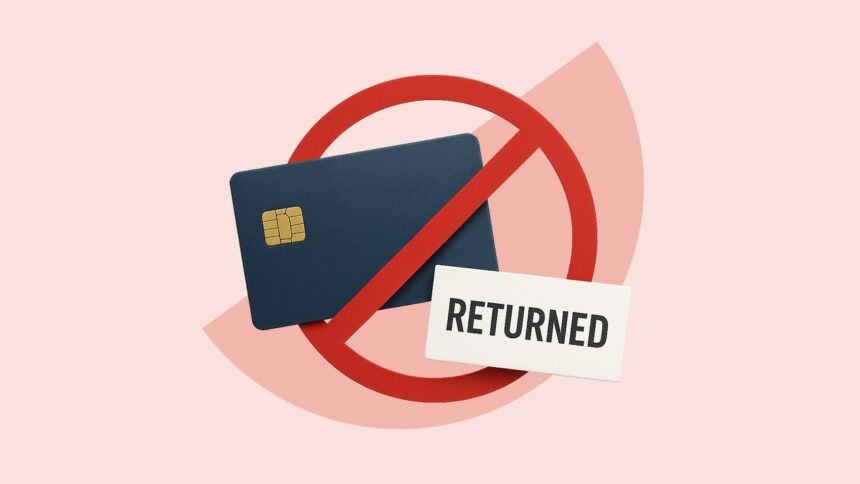Sometimes life happens and you suddenly find it difficult to keep track of your financial situation. If you pay a credit card and think it will pass, you are not alone.
If you’re wondering why this happens and what it means for your credit score, this guide will help you answer those questions. Learn the possibility that your credit card payment has been returned and what will happen next.
Why did my credit card payment return?
If you do not have enough funds in your bank account, your credit card payment may have been returned. Please check your account to see if this is the cause of your return.
It is also possible that your payment has been returned if you recently switched banks and forgot to update your bank account information or enter it incorrectly.
What happens when I receive a return credit card payment?
A returned payment will cause immediate consequences, but it’s not just one penalty you might face. The two most common results are:
1. You may be charged a return payment fee
Banks have their own policies on how to deal with situations where credit card payments you send do not clear your financial institution. Usually they do I’ll charge you For returned payments. Card issuers can also make multiple attempts to collect money from financial institutions. If payment is made at some point, the issuer can still collect the returned payment fee.
The amount of returned payment fees often varies between $25 and $40. Experian. If you have no other returned payment violations in your records, it should be lower, but if you were recently found guilty of the same crime, the fee could be higher. In any case, the fee should not be higher than the minimum payment.
The card issuer can also request it Late fee If your card payments are returned, depending on the terms of your contract with them.
2. Banks may charge insufficient funds
It’s not just that Your card issuer You will charge if your card payment is returned, but financial institutions will usually punish you with “inadequate funds” or overdraft fees that could be $37. According to the Consumer Financial Protection Bureau (CFPB).
but, CFPB Report One positive development is that many large financial institutions have decided to eliminate fund fees that are insufficient in their checking accounts. This saves about $2 billion a year in consumer savings.
This positive development includes several large banks that have recently decided to eliminate insufficient financial fees in checking accounts. Bankrate reports that it is included in these:
- Alliant Credit Union
- Alli Bank
- Bank of America
- Becu (Boeing Employee Credit Union)
- BMO Harris
- Capital 1
- chime
- Citibank
- Citizen Bank
- Discover the bank
- Fifth Third Bank
- Huntington Bank
- Key Bank
- PNC Bank
- Regional Bank
- Santander Bank
- Truist Bank
- US Bank
- Wells Fargo
How a returned payment affects your credit
Your payment history is a big part Your Credit Score (occupying 35% of the score), and paying on time will help you build your score. If your card payment is not passed and you are past due, it will be seen late payment or even I missed the payment. This tends to lower the score. This is because missed payments can remain on your credit report for up to 7 years.
The good news is that your payments usually have to be at least 30 days past due for the card issuer to report this expiration to the credit reporting agency. If your account has good records, you should talk to the publisher’s customer representative and ask for blessings for this one-off journey.
Conclusion
If your credit card payment is not processed, the card issuer will typically charge you a return fee. They can even add a late payment fee depending on the terms of your card contract. Not only that, the bank may rate you with “inadequate funds” fees.
Any payments that you ultimately missed or missed will eventually show up in your credit report, reducing your credit score and can stay on your credit report for up to seven years. The best way to prevent return payments is to track the funds in your account. Budget your spending.










